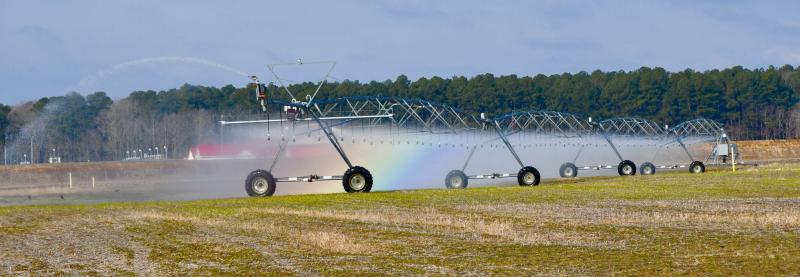Sussex expands farming operation by 375 acres
Just as the county announced it is expanding its farming operations, a new Sussex County Council member says it should get out of the business.
At a Feb. 2 meeting, District 2 Councilwoman Cindy Green was the lone council member who voted against a $188,979 expenditure for seed and chemicals for the coming year.
She said local farmers should be farming the land using their equipment and their investment. “The county should not be in the farming business,” she said.
Under the direction of county engineer Hans Medlarz, the county first took over farming of the spray-irrigation field at the Wolfe Neck treatment plant in 2017, and now is doing the same at its Inland Bays plant. Medlarz said no new staff or equipment will be needed as farming expands from 225 acres to 600 acres.
Farming leases for the properties have not been renewed.
The county purchased equipment in 2017 as well, including a combine and two harvest heads.
To meet the county's Delaware Department of Natural Resources and Environmental Control permit, a crop must be planted in the spray fields, he said.
Medlarz said with an average yield at harvest, the county typically breaks even on the farming operation. Corn and soybeans are planted in the spring and summer, and wheat or rye is planted in the fall and winter.
County staff in the fields
Medlarz said maintenance staff has taken on the task of planting and harvesting the fields, which allows more predictability for the treated wastewater spray schedule.
He said in the past, farmers leasing the property could not be depended on to commit to a schedule, which led to lost spraying days. He said in the last year of leasing the farming operation at Wolfe Neck, the county lost 128 spraying days. During the first year of the county taking over farming, the number was reduced to 25 lost days.
Medlarz said spraying must stop a few days before farming operations to allow time for drying and then remain off while work is done in the field.
“We have less maintenance on our rig equipment because we aren't stopping and starting as much. It's a win-win for us,” Medlarz said.
Medlarz said the county had leases with three different farmers at Wolfe Neck over six years. “We've tried to make it work, but with limited success,” he said. “The farmer tends to do what is best for his farming operation and not what is in the best interest of the county.”
Medlarz noted that within the next few years, the Wolfe Neck spray field will be converted to a wooded area and farming will cease at the facility.
Two other county fields are still leased to farmers. The 95-acre Bridgeville farm will be leased this year and the Piney Neck field is maintained by a farmer who lives adjacent to the property.













































